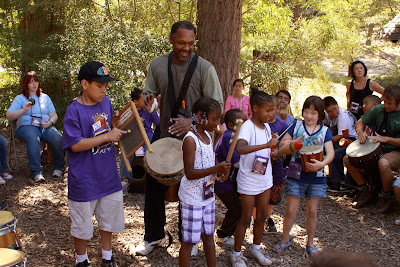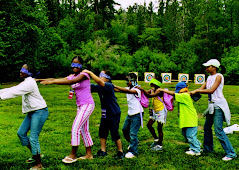This article was recently released with the LA Times. It was written by Garrett Therolf who has followed the unfortunate happenings within the Department of Children and Family Services in Los Angeles.
Los Angeles County supervisors ordered child welfare officials to disclose deaths resulting from abuse or neglect, amid questions Tuesday about why dozens of such fatalities apparently were not made public.
Supervisors told county staff to come up with a plan to implement a series of recommendations proposed by Michael Gennaco, chief attorney for the county's Office of Independent Review. Gennaco, who was asked by the board to conduct an independent audit, reported that the inquiry uncovered at least 22 cases in the last 2 1/2 years in which the county had not disclosed the deaths of children under the scrutiny of the child welfare system.
Department of Children and Family Services Director Trish Ploehn told supervisors "there is no excuse" for how the department had handled the disclosures.
Gennaco said the failure to publicly disclose those deaths violated state law. Among his recommendations:
* The release of all records inappropriately concealed.
* An end to the department’s practice of asking law enforcement agencies to issue any objections to the disclosure of records without first giving investigators an opportunity to review them.
* An independent auditor to regularly evaluate the department's decisions about which fatalities to disclose to the public.
Ploehn took deep breaths and was visibly uncomfortable under questioning by Supervisor Zev Yaroslavsky. She insisted that the failures to disclose deaths to the public had been honest mistakes and said she had been unaware of the problem until last week.
Yaroslavsky suggested that he has information contradicting her assertion. "There are some reasons to believe that this is not just an accidental disconnect," he said, declining to elaborate.
In addition to the inaccurate picture provided to the public, the undisclosed deaths also escaped review by the county's child-death investigator, Rosemarie Belda. Belda is responsible for recommending reforms to address any systemic issues at play in the deaths, and she can investigate only cases assigned to her by the Board of Supervisors, the county executive or Ploehn.
It was also unclear if officials had disciplined any social workers for errors that may have contributed to the undisclosed fatalities. Ploehn has said her department imposed no discipline on the social workers involved in the investigation of Jorge Tarin, the 11-year-old Montebello boy who hanged himself with a jump-rope just hours after he was interviewed in his home by county officials.
Supervisor Don Knabe said he opposed efforts to look back at any omissions.
"I do not agree with the recommendation that we have to go revisit these cases," Knabe said.
Supervisor Gloria Molina had asked for the independent audit after Yaroslavsky questioned why officials had not disclosed Jorge's suicide even though the boy had told authorities he planned to kill himself to end beatings and abuse.
Only 38 deaths resulting from abuse or neglect had been disclosed to the public by the department. But according to Gennaco, his inquiry found about 60 cases in which the department had gone to court to allege that a child with surviving siblings had died of abuse or neglect and that the siblings should be permanently removed from the home.
Social workers do not always file such petitions in court when a child dies. So officials acknowledge that the total number of abuse and neglect deaths could be significantly higher than 60.
The lack of clarity over the numbers was another indication of county officials' confusion about how many children have died of abuse or neglect after their families came under the scrutiny of child welfare workers.
At Tuesday's meeting, officials discussed as new all 60 cases now under review. Ploehn never disputed the number during that discussion. After Gennaco later alerted The Times that the number of new cases was unclear, department spokesman Nishith Bhatt said he was unable to say for certain the total number of abuse or neglect deaths. William T Fujioka, who is ultimately responsible for day-to-day oversight of the department, did not return repeated messages.
Ploehn has been criticized repeatedly by Yaroslavsky and Molina in recent months for management lapses, and supervisors' aides said Ploehn had recently polled their offices to gauge their support for her continued tenure.
Ploehn, who briefly answered questions from The Times on Tuesday, said her department would soon release records for each abuse or neglect fatality as required by the state public disclosure law. For months, The Times has been denied repeated requests for such records, and under the law's 10-day deadline after such a request, the records are already overdue.
Under an approved motion by Supervisor Mark Ridley-Thomas, staff was ordered to report to the board within 30 days on the implementation of Gennaco's recommendations and on a quarterly basis thereafter.
In addition, Ploehn said she would be establishing a new protocol for social workers who want to file a petition that children should be removed from their parents because a sibling has died of abuse or neglect.
Before filing such a petition in the future, social workers must first consult the department's risk management unit, which is responsible for determining which cases are subject to public disclosure and for minimizing liability, she said.
When we saw this article we couldn’t help but remember that these are the things, and others like this sort, that no human should ever know as truth, but that the small children that we serve go through. There are many of these little children out there, harmed sometimes by the transgressions of the adults in their life that are supposed to care for them. Although these stories are saddening, we are grateful for the reminder that they give to love and to LOVE with all we have.
























